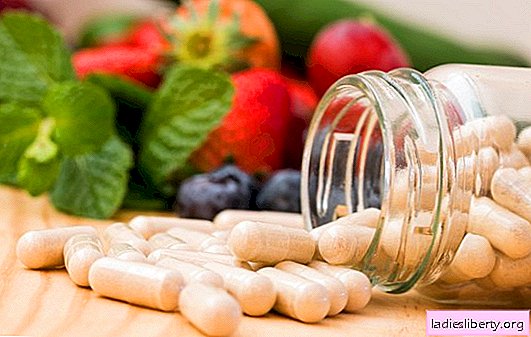
Probiotics are living microorganisms that are used for medical or nutritional purposes. Due to their partially proven safety, they have been added to food and dairy products for over 100 years. Recently, there has been growing interest in using them to prevent, mitigate or treat specific diseases.
The use of probiotics to treat colitis and hypertension has been studied in numerous clinical trials. However, recent studies caution patients: "probiotics can cause life-threatening side effects."
Can living microorganisms cause infectious diseases?
Some patients show symptoms of probiotic infection by microorganisms. The most commonly reported infection with bacardi saccharomycetes. In clinical studies, at least 8 cases of bacteremia were detected.
The most common pathogens are Lactobacillus acidophilus, Lactobacillus casei, and Lactobacillus GG.
Nine patients developed sepsis due to consumption of S. boulardii, Lactobacillus GG, Bifidobacterium Breve, or a combination of microorganisms. Endocarditis developed due to the use of lactobacilli and streptococci. The development of an abscess associated with Lactobacillus rhamnosus has also been reported.
Compelling evidence in favor of the safety of the L. rhamnosus GG strain comes from observational data in Finland. They do not show an increase in Lactobacillus bacteremia over a decade: from 1990 to 2000.
Despite the growing popularity of probiotics, safety remains unproven.
Lactobacilli accounted for 0.02% of all gram-positive blood cultures in affected patients. There have been no changes in this prevalence over the past decade.
Probiotics reduce the effects of antibiotics
Lactic acid bacteria are able to pass on to their "close brothers" knowledge on how to deal with antibiotics.
Most often, when using probiotics, insensitivity to tetracycline, lincosamide, macrolide or streptomycin develops.
There is some evidence that leuconostoc and pediococcus species can receive genetic information from healthy intestinal flora. The transmission of information from enterococci to lactobacilli and lactococci can occur in the intestines of animals.
Can microorganisms cause gastrointestinal upsets?
Dutch studies have shown the adverse effects of probiotics on the stomach and intestines. Probiotics cause abdominal cramps, nausea, flatulence, and taste disturbances. However, in a scientific review, the use of probiotics for the prevention of diarrhea did not have an adverse effect on health.
One clinical study has raised serious concerns about the safety of probiotics.
A PROPATRIA study examined the ability of a multi-purpose probiotic to prevent infectious complications in 296 patients with severe pancreatitis.
People assigned to probiotic therapy had a higher mortality rate.
Probiotics may have caused an inflammatory reaction in the small intestine with a decrease in capillary blood flow. Infected necrosis in patients with pancreatitis taking probiotics occurred in 25% of cases. No intestinal ischemia was mentioned. In 2 other studies of critically ill adults and children, an increase in infectious complications was observed in patients.
The effect of probiotics on the immune system
Probiotics affect both innate and adaptive immune responses. Long-term use of food additives has a clinically significant effect on the secretion of cytokines and the function of dendritic cells.
In some cases, they can over-stimulate the immune response in some people. As you know, an overreaction can lead to autoimmune diseases and chronic inflammatory conditions.
In 3 patients, autoimmune reactions were recorded when taking probiotics.
The long-term effects of living cultures are being studied in large studies. Safety is not conclusively proven, so taking uncontrolled probiotics is not recommended in all cases. Before use, you need to consult a qualified doctor. Self-medication is strictly prohibited.











